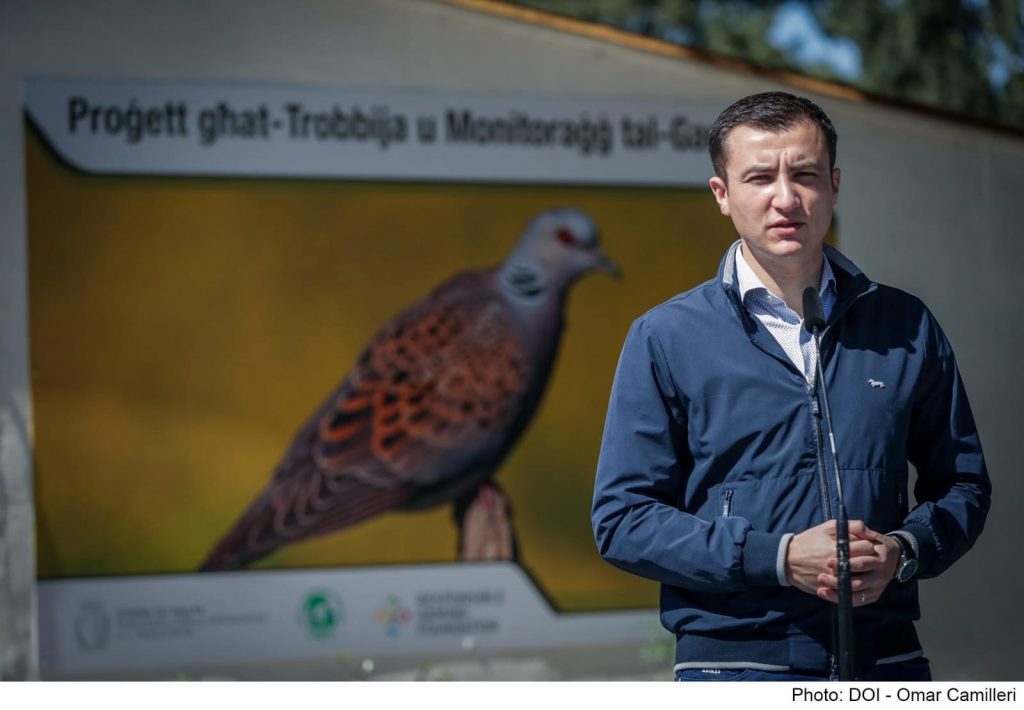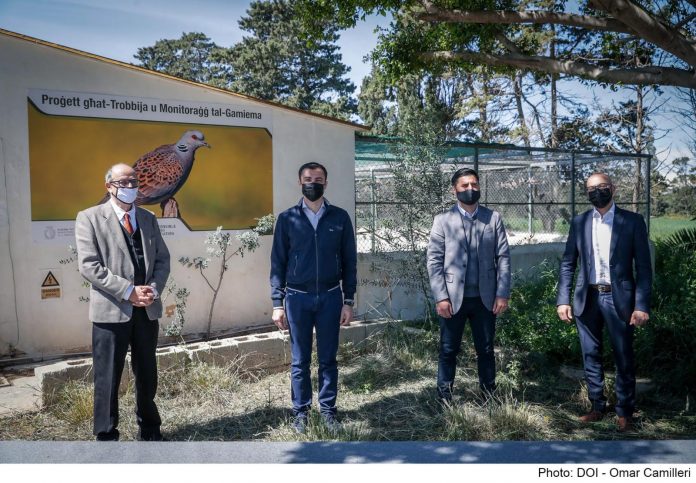Minister for the Economy and Industry Silvio Schembri presided over the signing of a Memorandum of Understanding (MOU) between the Federation for Hunting and Conservation (FKNK) and the Foundation for Responsible Gaming (RGF) for a project regarding the raising of turtle doves and wildlife monitoring.
Through this agreement, the FKNK is being assisted by the RGF with a €14,000 grant towards the conservation and support of the turtle dove population. In recent years, this species’ breeding program has achieved the desirable results.
Minister Silvio Schembri pointed out how this assistance from the RGF complements its mission to deter people from gambling addictions. He noted how he is informed that there are young people who have responsibly started practising this hobby as a means of preventing gambling addiction.
He explained that the launch of this project dates back to 2017, which mainly focused on the breeding of turtle doves to be released into the wild. He said that this has been a successful project which bore positive results and which merits further strengthening through this agreement. In fact, in May 2017, more than 400 turtle doves were released at Buskett Gardens, in 2018 the project saw more than 700 turtle doves released into the wild, this time from Gozo, and in June 2019, a further 350 turtle doves were released. Due to the COVID-19 pandemic, this activity did not take place in 2020.

In his speech, Minister Schembri announced that the project will now enter its second phase which is related to research and monitoring with the use of Solar GPS Transmitters. “It is precisely for this part of the project that the RGF has become involved through this agreement, so that research can be carried out. To this end, GPS Transmitters need to be purchased to be attached to the turtle doves which the FKNK will be releasing in the wild between May and June of this year”, said the minister.
This will allow the FKNK to carry out what are called ‘reference populations’, which signifies the monitoring of where and which countries the turtle doves flee to, their adaptation and the passage of this species. This will be carried out for the purpose of increasing the population of the species and sustaining it within the ecosystem.
The minister praised the collective effort by the FKNK in teaming up with the Italian Hunters Federation, which is highly experienced in the administration of several similar programs where birds are fitted with this type of equipment and eventually released into the wild.
Minister Schembri encouraged the FKNK to continue its research related work which will be beneficial for all those who practice the hobby, while simultaneously strengthening the program for indoor turtle dove breeding and eventual release into the wild.
Non-Executive Chairman of the Responsible Gaming Foundation Neville Mangion said the foundation believes that the continuation of the project which began in 2017 is an alternative activity to the problem of gambling in society. “The release into the wild of captive turtle doves is a tangible contribution which Malta can make to the conservation of this species in the wild, and the foundation agrees with the FKNK that other IT means should be adopted for the monitoring of bird movements”, said Mr Mangion.
Public Relations Officer Lucas Micallef thanked Minister Schembri and the RGF for their endorsement so that the FKNK can continue to be given support in order to increase the wild turtle dove population. He explained that release always takes place during migration, when hunting and/or trapping is not permitted. “This is the only tangible contribution which Malta can make to the conservation of this species in the wild, as turtle doves do not nest on a regular basis nor in any substantial number in the wild on the Maltese Islands. In addition, the number released could serve as a compensatory measure for turtle doves that can be taken from the wild in the Maltese Islands. As the turtle doves that are released are bred in captivity, they will all be adequately marked with rings before being released”, concluded Mr Micallef.










